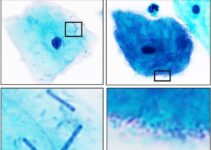Strawberries, grapes, tomatoes, Kale… Every year, the Environmental Working Group (EWG) determines the non-organic foods that have the highest levels of pesticides. Labeled the “Dirty Dozen” the organization reminds us that their consumption is harmful to the health.

Pesticides
Pesticides used to control weeds and pests are harmful to our health. At the end of March, the Working Group on the Environment published its new guide, which measures the pesticide content of non-organic fruit and vegetables. The expert working group used data from the United States Department of Agriculture (USDA) to compile this list. Before each test, the tested items were washed, peeled, or grated.
Pesticides: Which vegetables and fruits are most contaminated?
Each spring, the institution unveils its ranking of the “dirty dozen”, twelve plants that have been contaminated with these chemicals during cultivation and harvesting. In 2020, an expert working group defined :
- Strawberries
- Spinach
- Kale
- Nectarines
- Apples
- Grape
- Peaches
- Cherries
- Pears
- Tomatoes
- Celery
- Potatoes
According to the Agency, almost 90 % of the samples analyzed contained residues of two or more pesticides. This is the first time that the EWG has tested grapes. To their surprise, they turned out to be one of the most affected fruits. About 99% of them are contaminated with two or more chemicals.
Although kale is highly valued in the United States for its reputation as a healthy food, it is still ranked third in the EWG rankings. According to USDA studies, a pesticide classified as carcinogenic is regularly detected in this green vegetable: dimethyl ester of tetrachloroterephthalic acid (DCPA).
Which vegetables and fruits are least contaminated with pesticides?
In addition to identifying which fruits and vegetables are most heavily contaminated by pesticides, the EWG also listed the safest inorganic products which they nicknamed the “Clean Fifteen”. The fifteen safest vegetables and fruits according to the EWG are as follow:
- Avocado
- Sweet corn
- Pineapple
- Onion
- Papaya
- Peas (frozen)
- Eggplants
- Asparagus
- Cauliflower
- Melons
- Broccoli
- Mushrooms
- kiwi
- Cabbage
- Honeydew melon
References
https://www.ewg.org/foodnews/summary.php
Related Articles
Researchers Sound Alarm About Ultra-Processed Foods and You Should Listen!
San Diego State: Common Foods Can Improve Gut Microbiome
How Alcohol Consumption Causes You to Age Faster
Sweet Drinks Including Natural Fruit Juices Could Raise Risk of Developing Type 2 Diabetes
The List of Supplements to Be Avoided During the Pandemic
FEEDBACK:



